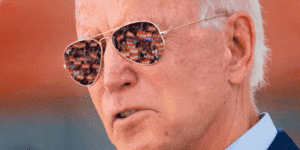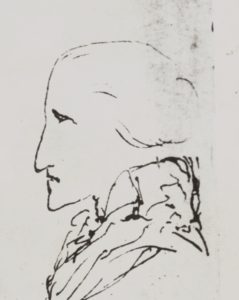Echoes of George Washington in Joe Biden?
Our current president has never been confused with the nearly mythical figure who first occupied that office more than 230 years ago. Not ever. Yet there are striking parallels between the challenges both leaders faced, and between the qualities they embodied.
Both took office in times of crisis. The economic condition of the United States in 1789 was dire. Real incomes of Americans had declined up to thirty percent over the preceding years – likely a worse depression than that of the 1930s. Thousands of armed men had recently attacked an arsenal in Massachusetts, rebelling against the state government.
Biden leads a nation still mired in the mourning and upheaval of a vicious pandemic that has blasted routines and shrunk our daily lives. The January 6 attack on the Capitol, fueled by the outgoing president’s lies, threatened to shake the republic’s foundations.
Each president had to restore confidence that government would be a force for good. In the drift years of the 1780s, the national government under the Articles of Confederation was, in Washington’s words, “little more than the shadow without the substance.” Taking office under the new Constitution, Washington had to figure out how to pay the nation’s massive war debts, defend its frontiers, and revive its commercial life.
Biden similarly must restore confidence in a government that has been reviled for forty years as a cause of America’s problems, never a solution to them. Toxic partisanship has paralyzed action on infrastructure, climate, and immigration. Missteps in the pandemic response further undermined the government’s standing. Biden now benefits from welcome spasms of competence in the vaccine rollout and the early stages of the American Rescue Plan.
Strikingly, both presidents confronted challenges with immigration and infrastructure. Delivering his First Annual Address, Washington asked Congress to smooth the naturalization of immigrants, improve the post office and post roads, and create a national university. Biden, too, is seeking an improved immigration system, modernized physical infrastructure, and public support for education.
Both presidents pledged to raise taxes. Washington needed revenue to repay those war debts, while Biden aims to shift tax burdens onto the rich and corporations, producing revenue to support other ambitious plans.
Congress balked at the programs proposed by both presidents. After months of maneuvering and horse-trading, slender majorities approved Washington’s proposal to restore the nation’s credit and place the government’s residence on the Potomac River. Funding for the Jay Treaty of 1795, which preserved peace for the infant nation, squeaked narrowly through Congress.
Biden held a whisker-thin majority together for his American Rescue Plan, funding economic relief from pandemic-inflicted losses. His proposals for infrastructure, immigration, and climate action face challenging legislative arithmetic.
Perhaps more unexpectedly, both presidents share personal qualities. Neither Washington nor Biden won reputation as an orator. Both men were affable and comfortable in their own skins, able to connect quickly and meaningfully with other people. Neither sported gaudy education credentials. Biden is the first president in more than thirty years without an Ivy League degree, while Washington had but a few years of formal education.
Both endured tragic personal losses. Washington was eleven when his father died, barely twenty when a favorite brother died; another favorite brother died shortly before Washington became president. He lost both of his young stepchildren. Biden’s first wife and daughter died in a tragic car crash; his son Beau died of cancer in 2015.

Tempered by those experiences, both presidents demonstrated deep empathy for the suffering of others, plus an unpretentious personal style.
One Washington intimate applauded the Virginian for his practice of strolling the streets of the capital. People, he wrote, “form their judgments of characters more from such slight occurrences, and perhaps they are right, as the heart is more immediately consulted” about simple habits, “and an error of judgment is more easily pardoned than one of the heart.” Biden’s aviator shades are goofy but genuine, as is his broad grin.
For all these parallels, though, the Biden presidency will turn on the question this essay began with: Can he reclaim the people’s confidence for the government? In his first inaugural address, Washington recognized that his duty was “the preservation of the sacred fire of liberty, and . . . the Republican model of Government.”
He did. Now it’s Biden’s turn.

Biden is in no way a companion of president Washington. Perhaps you vote democrat and lean left politically. Your book on the summer of 1787 is tremendous but you are wrong about me Trump. Trump reduced regulations and helped most Americans to improve financially and live without government interference. Trump made our Allie’s trust us and our adversaries at least respect us. Biden and the Democrats have brought America down with the war on hydrocarbons and weakened our military capabilities, with the humiliating retreat from Afghanistan. Biden did not get more votes than Obama. The 2021 election was rigged and you know it